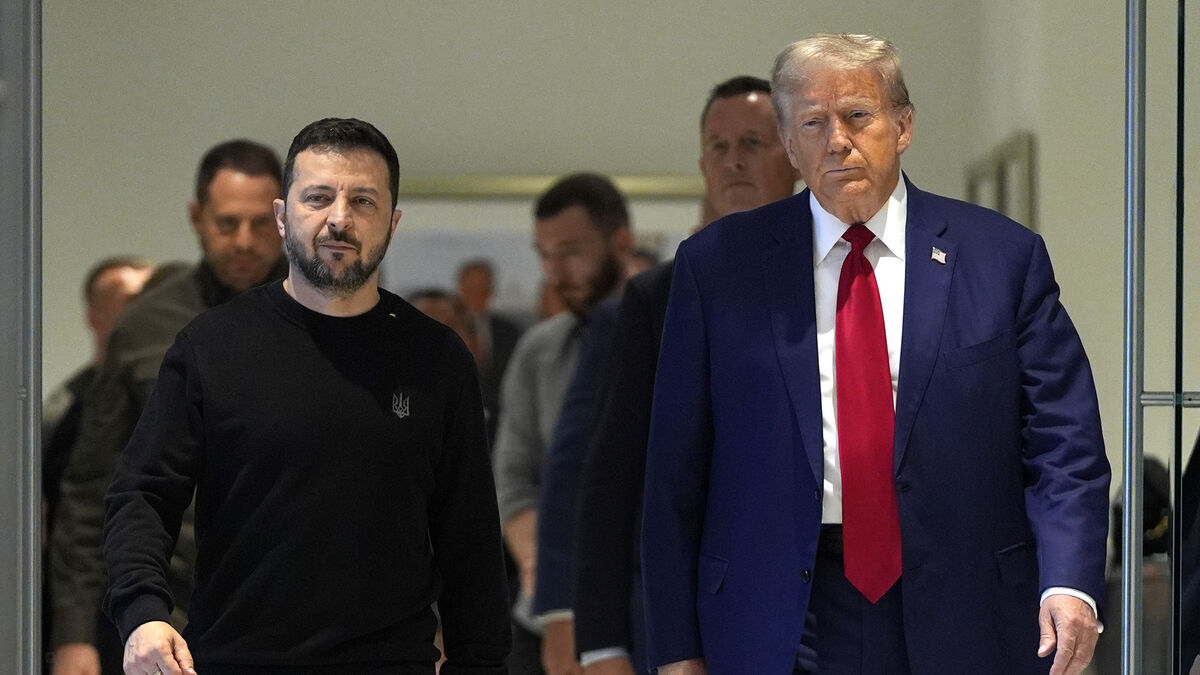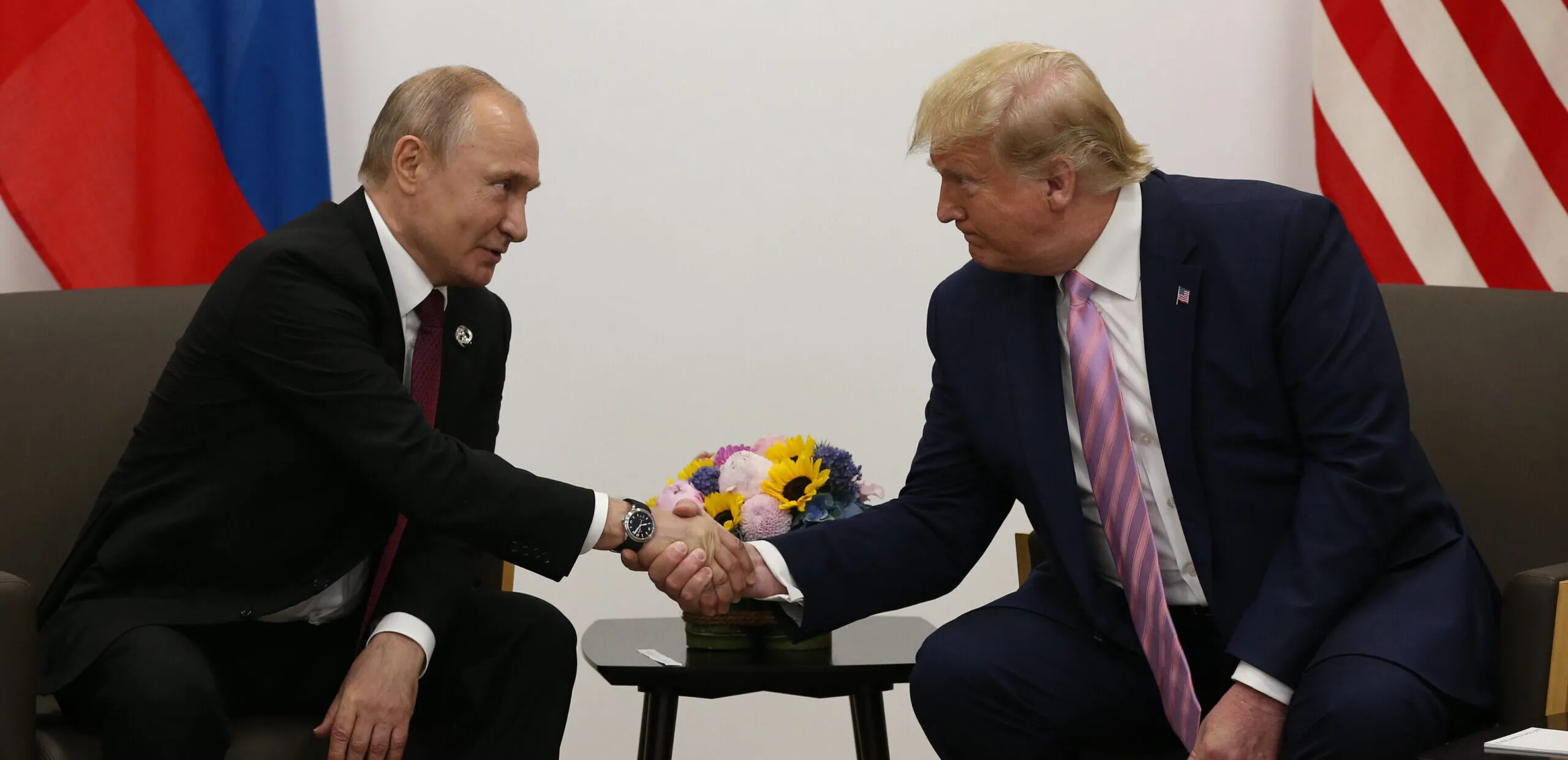Europe’s leaders and officials have been caught off guard by a dramatic collapse in American support for Ukraine over the past week.
Many remain baffled as to why U.S. President Donald Trump has turned so aggressively against Ukraine’s leader, Volodymyr Zelensky, echoing the hostile disinformation typically associated with the Kremlin.
European leaders were excluded from this week’s Russia-U.S. talks. They have no insight into when Washington will propose a peace deal to Kyiv or whether it will follow through on its implicit threat to disengage from the conflict. The future remains uncertain.
“The way in which this was delivered – blow after blow after blow, within days – that was a real shock” for the continent, said Armida van Rij, a senior research fellow and head of the Europe Programme at London-based think tank Chatham House.
European politicians are in a state of turmoil. A hastily convened summit in Paris generated a range of hawkish proposals intended to define a path forward in these uncertain times.
However, Europe remains divided in its approach. Proposals such as a peacekeeping force, increased defense spending, and additional military aid have been put forth, but without a unified strategy.
This disjointed response was one side of a striking contrast this week, with the other being the U.S. and Russia suddenly appearing aligned, dismissing Ukraine’s demands and territorial claims from negotiations.
Trump has ridiculed Zelensky, advocated for elections in the war-torn nation, and blamed Ukraine for a war initiated by Russia. European leaders have pushed back, but there is a risk that provoking Trump further could ultimately serve Putin’s interests.
The emergence of a strong leader could help unify Europe, some experts suggest—someone capable of rallying support behind a cohesive strategy and acting as a bridge between Kyiv and Washington.
Britain’s Keir Starmer and France’s Emmanuel Macron are the most prominent candidates, and both are set to visit Washington next week—trips that have now taken on heightened significance.
Yet, Europe is not known for its unity on defense, and every major leader faces domestic political or economic challenges. Additionally, the question of how to handle Trump remains a delicate one; alienating him further could have serious geopolitical consequences.
And so, uncertainty lingers. “We do not want to fracture our relationship with America,” British defense analyst Nicholas Drummond told. “But what do you do when your closest ally gets into bed with your worst enemy?”
Europe anticipated that Trump would show less commitment to Ukraine’s sovereignty than the previous Biden administration, but the abruptness and severity of the shift have been staggering.
The sight of a sitting U.S. president blaming an ally for its own invasion was shocking and prompted a unified condemnation from European leaders. On both an emotional and strategic level, Europe has been left reeling.
But the warning signs were there. For months, Trump and his inner circle had vacillated on the war’s trajectory, signaling a lack of commitment to Ukraine’s sovereignty and foreshadowing a dramatic policy shift.
From the moment of Trump’s election victory, van Rij said, “European heads of government should have been getting together … to figure out what the European plan was going to be. But that hasn’t really happened.” Instead, urgency has only now set in.

Trump and Zelenskyy
Two possible futures lie ahead: one with a negotiated peace deal and one without. Either scenario would likely require European leadership, as Trump’s administration has signaled that its primary focus is the Indo-Pacific and U.S. border security.
UK Prime Minister Keir Starmer has made the first substantial move to galvanize European governments, announcing a significant policy shift: Britain is prepared to deploy troops to help maintain a peace agreement in Ukraine.
Western officials indicated Wednesday that such a force would likely consist of fewer than 30,000 troops, focusing on “reassurance,” securing critical Ukrainian infrastructure, and instilling confidence in the state.
Britain and France are spearheading this initiative. France first proposed deploying troops last year but was met with European resistance. However, Starmer has emphasized that American support would be crucial; officials noted that such backing would likely take the form of air power, controlled from a NATO country such as Poland or Romania.
Starmer and Macron are expected to present their plans to Trump in Washington next week.
However, many uncertainties remain. For example, if NATO troops stationed in Ukraine were attacked by Russia, what level of response would be warranted?
Additionally, Starmer oversees a military that has been steadily shrinking due to conflicts in Iraq and Afghanistan. European cooperation will be essential. “The British Army is suffering from the cumulative effects of 40 years of decline,” Drummond said.
“It will be very difficult for the military in our current situation,” acknowledged an MP from the governing Labour Party, who has urged for increased defense spending beyond the planned rise from 2.3% to 2.5% of GDP. “My sense is we can cope, but it is in dire need of investment for the modern battlefield”.
Deploying troops to Ukraine is far from a universally accepted idea. Poland, which possesses NATO’s largest military in Europe and plays a significant role in supporting Ukraine, is particularly hesitant, fearing it would heighten vulnerabilities along its own borders.
If an informal European leadership group takes shape, Polish Prime Minister Donald Tusk will likely demand a seat at the table. He is expected to challenge larger nations like Britain, France, and Germany over their defense commitments.
Germany, in particular, may face harsh criticism. An upcoming election on Sunday could lead to prolonged negotiations over its next government.
Likely incoming chancellor Friedrich Merz recently took a strong stance on Ukraine at the Munich Security Conference but has yet to commit to significantly raising Germany’s modest defense spending, currently around 1.5% of GDP.
Germany’s influence in European defense discussions has already been weakened by its past economic ties with Russia, despite Polish warnings. Rebuilding credibility in this arena will be a challenge for Merz.
Meanwhile, there is a distinct possibility that a U.S.-Russia peace deal could be rejected by Zelensky, or that Putin could refuse to accept peacekeepers. In such a scenario, European support would be indispensable if Ukraine were to sustain the conflict indefinitely.
That would require more than just diplomatic backing; Europe would need to compensate for any shortfall in military aid.
Western officials noted this week that Ukraine has likely received sufficient military supplies to last through the summer.
“Biden got a lot of kit in before the inauguration. Kit is still going in,” one official stated. However, losing U.S. military support would be a significant blow. “There is a difference in quality” between American and European supplies, the official added.











































